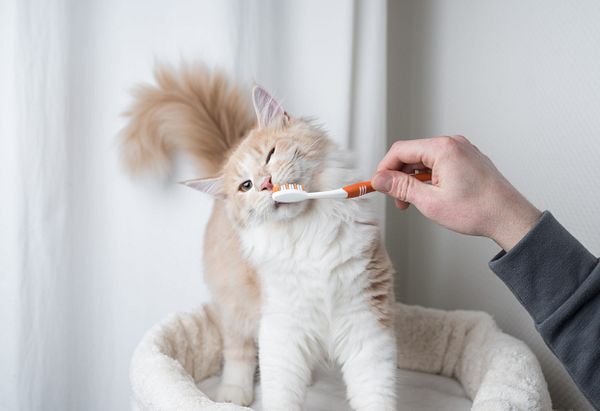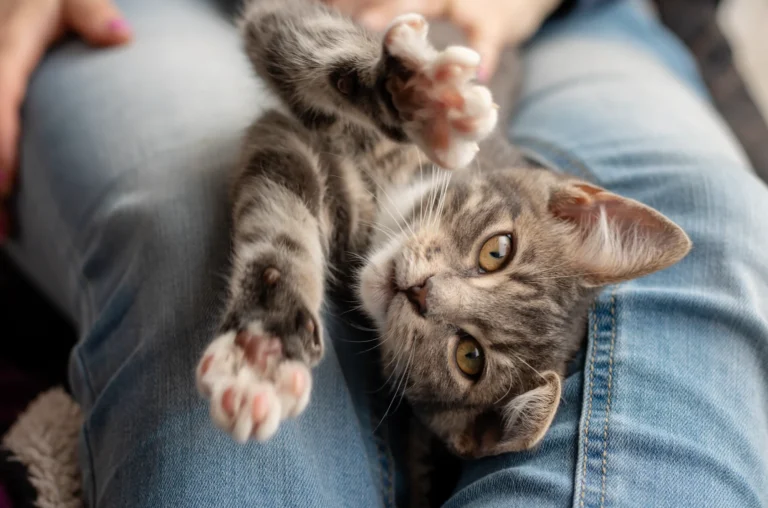Cat health and disease prevention
Understanding Feline Wellness
A key aspect of caring for a feline companion is understanding feline wellness. As cat owners, it is our responsibility to ensure the well-being of our furry friends. Feline wellness encompasses various elements, including physical health, mental and emotional well-being, and overall quality of life. By understanding and prioritizing these aspects, we can provide our cats with the best possible care and help them live long, healthy, and happy lives.
When it comes to physical health, regular veterinary check-ups are crucial. Just like humans, cats can be prone to certain illnesses and conditions. Therefore, scheduling routine check-ups with a trusted veterinarian is essential. During these visits, the vet will perform a thorough examination, checking for any signs of disease, monitoring weight and body condition, and addressing any concerns or questions you may have. Remember, early detection of health issues can significantly improve the chances of successful treatment and management, so don’t underestimate the importance of these visits.
The Importance of Regular Veterinary Check-ups
Regular veterinary check-ups are crucial for maintaining the overall health and well-being of our feline companions. These appointments provide an opportunity for early detection and prevention of potential health issues, ensuring that our cats have the best chance at a long and happy life. During these check-ups, the veterinarian will perform a thorough physical examination, assess vital signs, and evaluate any changes in the cat’s behavior or appearance. By doing so, they can identify any underlying health conditions that may not be obvious to the owner. Additionally, routine bloodwork and other diagnostic tests may be conducted to further assess the cat’s internal health and catch any potential concerns before they become serious.
In addition to preventing and detecting health problems, regular veterinary check-ups also play a vital role in keeping our feline friends up to date on necessary vaccinations. Vaccinations help protect cats from common and potentially deadly diseases such as rabies, feline leukemia, and distemper. These vaccinations not only safeguard the individual cat but also contribute to the overall health and wellbeing of the entire feline population. By ensuring that our cats receive the necessary vaccinations during their regular check-ups, we can help create a safer and healthier environment for all cats in our communities. Additionally, the veterinarian can provide guidance on other preventive measures, such as parasite control and dental care, which can further enhance our cat’s overall health and quality of life.
Maintaining a Balanced Diet for Optimal Cat Health
A balanced diet is imperative for maintaining optimal health in cats. Just like humans, cats require a combination of essential nutrients to thrive. Providing them with a well-rounded diet not only helps in meeting their nutritional needs but also aids in preventing various diseases.
Feeding your cat a high-quality commercial cat food is recommended by veterinarians. These foods are specially formulated to meet the nutritional requirements of cats at different life stages. They contain the necessary proteins, carbohydrates, fats, vitamins, and minerals that your furry friend needs for a healthy existence. While giving your cat occasional treats is alright, it is important to ensure that the majority of their diet comes from nutritionally complete and balanced cat food. Additionally, it is essential to consult with your veterinarian regarding portion control as overfeeding can lead to obesity, which can in turn result in several health problems for your feline companion.
The Role of Exercise in Disease Prevention for Cats
Regular exercise is an essential component of maintaining optimal health and preventing diseases in cats. Just like humans, cats benefit from physical activity to keep their bodies strong and maintain a healthy weight. Engaging in regular exercise helps to improve cardiovascular health, increase muscle tone, and promote overall fitness.
Physical activity is particularly important for indoor cats, as they may not have access to the same opportunities for exercise as outdoor cats. Without regular exercise, indoor cats can become sedentary and more prone to weight gain and obesity. By encouraging our feline companions to engage in play and exercise, we can help them burn calories, stimulate their minds, and prevent the development of various health conditions. Providing an assortment of cat toys, scratching posts, and interactive play sessions can keep our furry friends active and reduce the risk of obesity-related diseases such as diabetes, heart disease, and arthritis.
Proper Hygiene Practices for a Healthy Feline
Maintaining proper hygiene practices is essential for ensuring the overall health and well-being of your feline friend. Cats are known for their impeccable self-grooming habits, but there are certain hygiene practices that require intervention from pet owners.
One of the most important hygiene practices for cats is regular brushing of their fur. Brushing not only helps to remove dirt and debris from their coat, but it also helps to minimize the formation of hairballs and prevent matting. Additionally, regular brushing allows you to check for any signs of fleas, ticks, or skin abnormalities that may require further attention. It is advisable to use a brush specifically designed for cats, as their fur is delicate and can easily get damaged with the wrong tools.
Vaccinations: Protecting Your Cat from Common Diseases
Vaccinations play a crucial role in safeguarding your cat’s health by protecting them from common diseases. By ensuring that your feline companion receives the necessary vaccinations, you can significantly reduce the risk of them contracting serious illnesses. Not only do these vaccines provide immunity to your cat, but they also help in preventing the spread of contagious diseases, ensuring the well-being of other pets in your community.
One of the most essential vaccines for cats is the rabies vaccine. Rabies is a fatal viral infection that can be transmitted to humans as well. Vaccinating your cat against rabies not only protects them but also reduces the risk of potential exposure to the disease for you and your family. Other vaccinations, such as those for feline panleukopenia, feline herpesvirus, and feline calicivirus, are equally important in preventing common and potentially serious feline diseases. It is crucial to consult with your veterinarian to determine the appropriate vaccination schedule and ensure that your cat receives all the necessary immunizations.
Identifying and Preventing Parasitic Infections in Cats
Parasitic infections can be a common occurrence in cats, and it is important for responsible pet owners to be aware of the signs and take necessary preventative measures. One of the most visible signs of parasitic infections in cats is excessive scratching or biting at their skin. This can indicate the presence of fleas, ticks, or mites, which can cause severe irritation and discomfort for your furry friend. Additionally, cats with parasitic infections may exhibit symptoms such as hair loss, scabs, or skin rashes. If you notice any of these signs in your cat, it is crucial to consult your veterinarian for a proper diagnosis and treatment.
Preventing parasitic infections in cats begins with regular grooming and cleanliness. Brushing your cat’s fur regularly can help remove fleas or ticks before they have a chance to settle in. Additionally, keeping your cat’s living environment clean and free from insects can help prevent the spread of parasites. Using appropriate flea and tick preventatives recommended by your veterinarian can also play a significant role in thwarting infections. Furthermore, it is essential to provide your cat with a healthy diet and ensure they have access to clean water at all times, as a well-nourished cat is more likely to have a strong immune system to fight off parasites. By taking these proactive steps, you can help protect your feline companion from the discomfort and health risks associated with parasitic infections.
Dental Care: Promoting Oral Health in Felines
Dental care plays a crucial role in maintaining the overall health and well-being of our feline friends. Just like humans, cats can also suffer from a variety of dental problems, such as gum disease, tooth decay, and oral infections. These issues not only cause discomfort for our furry companions but can also lead to more serious health concerns if left untreated.
Regular dental care is essential for promoting good oral health in cats. This includes brushing your cat’s teeth at least two to three times a week using a toothbrush and toothpaste specifically designed for feline use. Additionally, providing your cat with dental treats or toys that help clean their teeth can also contribute to overall oral hygiene. By incorporating these simple practices into your cat’s routine, you can take proactive steps to prevent dental problems and ensure they have a healthy, happy smile.
Why is dental care important for felines?
Dental care is crucial for felines as it helps promote oral health and prevents various dental diseases such as periodontal disease, tooth decay, and gum infections. It also ensures overall well-being and prevents other health issues related to poor oral hygiene.
How often should I take my cat for a veterinary check-up?
It is recommended to take your cat for a veterinary check-up at least once a year. Regular check-ups allow the veterinarian to assess your cat’s oral health, detect any potential dental issues early on, and provide appropriate treatment or preventive care.
How can I maintain a balanced diet for my cat’s optimal health?
To maintain a balanced diet for your cat, it is essential to provide high-quality, commercially-prepared cat food that meets their nutritional needs. Consult your veterinarian to determine the appropriate diet for your cat based on their age, breed, and any specific health requirements.
What role does exercise play in preventing diseases for cats?
Regular exercise is crucial for cats as it helps maintain a healthy weight, promotes cardiovascular health, and improves overall fitness. Exercise also aids in preventing diseases such as obesity, diabetes, and certain joint issues in cats.
What are some proper hygiene practices for a healthy feline?
Proper hygiene practices for a healthy feline include regular grooming to maintain clean fur and skin, brushing their teeth regularly with cat-specific toothpaste, keeping their litter box clean, and providing a clean and safe environment for them to live in.
Why are vaccinations important for cats?
Vaccinations are important for cats as they help protect them from common and potentially life-threatening diseases such as rabies, feline distemper, and feline leukemia. Vaccinating your cat can prevent the spread of these diseases and ensure their long-term health.
How can I identify and prevent parasitic infections in my cat?
To identify parasitic infections in your cat, watch out for symptoms such as excessive itching, hair loss, vomiting, diarrhea, and visible parasites. Preventive measures include regular veterinary check-ups, administering preventive medications, and maintaining a clean living environment for your cat.
How can I promote oral health in my feline?
To promote oral health in your feline, ensure they have a balanced diet, provide regular dental check-ups and cleanings by a veterinarian, offer dental treats or toys to help clean their teeth, and maintain good oral hygiene practices such as brushing their teeth regularly.







